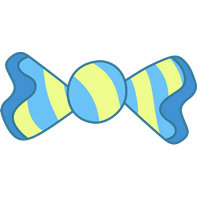Positional Members
You can let the caller pass some values as positional parameters to the starting function, that creates the builder or to the finishing function, that consumes it.
Starting Function
Use #[builder(start_fn)] to move some members to the parameters of the starting function.
rust
#[derive(bon::Builder)]
// Top-level attribute to give a custom name for the starting function
#[builder(start_fn = with_coordinates)]
struct Treasure {
// Member-level attributes to move members
// to the parameters of `with_coordinates()`
#[builder(start_fn)]
x: u32,
#[builder(start_fn)]
y: u32,
label: Option<String>,
}
let treasure = Treasure::with_coordinates(2, 9)
.label("oats".to_owned())
.build();
assert_eq!(treasure.x, 2);
assert_eq!(treasure.y, 9);
assert_eq!(treasure.label.as_deref(), Some("oats"));rust
// The starting function's name is the name of the underlying function itself,
// that's why we don't really need `#[builder(start_fn = ...)] rename here
// unlike in #[derive(Builder)] syntax case.
#[bon::builder]
fn display_treasure(
// Member-level attributes to move members
// to the parameters of `display_treasure()`
#[builder(start_fn)]
x: u32,
#[builder(start_fn)]
y: u32,
label: Option<String>,
) -> String {
format!("{x}, {y}, {label:?}")
}
let treasure = display_treasure(2, 9)
.label("oats".to_owned())
.call();
assert_eq!(treasure, r#"2, 9, Some("oats")"#)rust
struct Example;
#[bon::bon]
impl Example {
// The starting function's name is the name of the underlying function itself,
// that's why we don't really need `#[builder(start_fn = ...)] rename here
// unlike in #[derive(Builder)] syntax case.
#[builder]
fn display_treasure(
// Member-level attributes to move members
// to the parameters of `display_treasure()`
#[builder(start_fn)]
x: u32,
#[builder(start_fn)]
y: u32,
label: Option<String>,
) -> String {
format!("{x}, {y}, {label:?}")
}
}
let treasure = Example::display_treasure(2, 9)
.label("oats".to_owned())
.call();
assert_eq!(treasure, r#"2, 9, Some("oats")"#)TIP
There are two versions of the #[builder(start_fn)] used here: top-level and member-level. They have different meanings.
Finishing Function
Use #[builder(finish_fn)] to move some members to the parameters of the finishing function.
rust
#[derive(bon::Builder)]
// Top-level attribute to give a custom name for the finishing function
#[builder(finish_fn = located_at)]
struct Treasure {
// Member-level attributes to move members
// to the parameters of `located_at()`
#[builder(finish_fn)]
x: u32,
#[builder(finish_fn)]
y: u32,
label: Option<String>,
}
let treasure = Treasure::builder()
.label("oats".to_owned())
.located_at(2, 9);
assert_eq!(treasure.x, 2);
assert_eq!(treasure.y, 9);
assert_eq!(treasure.label.as_deref(), Some("oats"));rust
// Top-level attribute to give a custom name for the finishing function
#[bon::builder(finish_fn = located_at)]
fn treasure(
// Member-level attributes to move members
// to the parameters of `located_at()`
#[builder(finish_fn)]
x: u32,
#[builder(finish_fn)]
y: u32,
label: Option<String>,
) -> String {
format!("{x}, {y}, {label:?}")
}
let treasure = treasure()
.label("oats".to_owned())
.located_at(2, 9);
assert_eq!(treasure, r#"2, 9, Some("oats")"#);rust
struct Example;
#[bon::bon]
impl Example {
// Top-level attribute to give a custom name for the finishing function
#[builder(finish_fn = located_at)]
fn treasure(
// Member-level attributes to move members
// to the parameters of `located_at()`
#[builder(finish_fn)]
x: u32,
#[builder(finish_fn)]
y: u32,
label: Option<String>,
) -> String {
format!("{x}, {y}, {label:?}")
}
}
let treasure = Example::treasure()
.label("oats".to_owned())
.located_at(2, 9);
assert_eq!(treasure, r#"2, 9, Some("oats")"#);TIP
There are two versions of the #[builder(finish_fn)] used here: top-level and member-level. They have different meanings.
